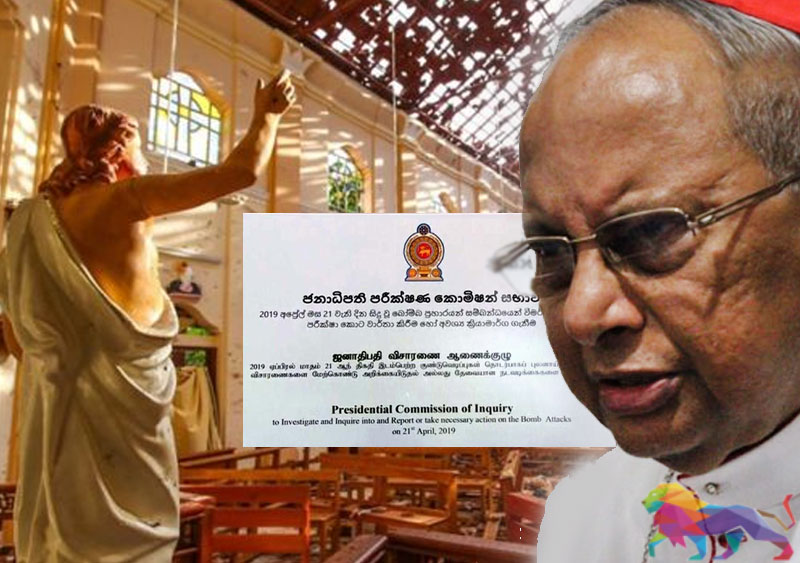With the mastermind still at large, the motive not established and high-profile government officials going scot-free, Sri Lanka’s Easter bombing has reached a cul de sac after three years of investigations.
With the 2019 probe into the terrorist atrocity dragging its feet, the less influential Christian community has been let down by the Gotabaya Rajapaksa government, which came to power in the same year promising to bring the perpetrators to book.
The 279 people who died in attacks on three churches and three hotels included worshippers in two Catholic churches and a Protestant church attending Easter Sunday services. No wonder the Catholic Church views the current regime with suspicion as the probe enters a third year.
From day one, it was clear that the government had its hands tied as Rajapaksa’s immediate predecessor Maithripala Sirisena and the then prime minister Ranil Wickremesinghe were among top government figures blamed for their inaction despite repeated intelligence warnings about the bombings on April 21, 2019, that left more than 500 wounded.
A group of nine suicide bombers affiliated to local Islamist group National Thowheed Jamath (NTJ) were involved in the attacks. Two days after the atrocity, Islamic State claimed responsibility. Those who perished included 45 foreigners who were having breakfast.
A kind of official version is that both the then president and the prime minister were at loggerheads at the time of the incident, which prevented the executive from restoring its well-oiled war infrastructure that had proved so efficient in suppressing the Liberation Tigers of Tamil Eelam’s (LTTE) claim for a separate homeland.
Including the former president and the prime minister, who hail from influential families, under the gambit of the investigation left enough room for political maneuvering and the blame game. Since its independence in 1948, Sri Lanka has been ruled by powerful elite families who have a habit of burying the hatchet to pursue common interests.
In fact, passing the buck is what exactly happened during the probe. Hemasiri Fernando, then secretary to the Defense Ministry, and the then inspector-general of police Pujith Jayasundara, who were arrested in 2019 and held in custody for four months before securing bail, testified to a parliamentary inquiry that Sirisena failed to follow established protocols in assessing security threats ahead of the deadly bombings.
They found Sirisena an easy target, passed the buck and saved their skin. The duo told the commission that the ex-president as minister of defense and law and order simply did not take the threats seriously. Both Jayasundara and Fernando were absolved of all 855 charges including negligence and murder.
With them becoming free birds, efforts to unearth the role of the government and the executive in abetting the bombing or their failure to prevent it have come to naught.
The government’s failure was simply blamed on the political infighting leading to a communication breakdown between the president and the prime minister.
Unlike in other South Asian nations, Islam in Sri Lanka is known for its tolerance and secularism. Though it was a fact that many anti-Muslim attacks had taken place before the Easter bombings, they were not large in scope for the community to take revenge. In fact, most of the atrocities were carried out by the majority Sinhalese community, not by Christians and foreigners.
Unlike the jihadist networks in Pakistan and Bangladesh, Sri Lankan terror outfits are less exposed to the outside world. This leaves them with less experience, wherewithal and resources to execute a major operation such as meticulously exploding bombs at six places around the same time in a well-coordinated attack.By linking a few suspects, who were rounded up in the initial stages of the probe, with the international terror network of Islamic State, the rationale for the bombings was imported from abroad and the purpose was lost.
During the height of the civil war, LTTE never attacked tourists and foreigners, and the country’s status as a tourist-friendly nation was never dented. What message were the killers trying to send while targeting wealthy foreigners and mixing their blood with local conflict dynamics? Does it make sense? Why should Christians, who are known as a peace-loving community in the Buddhist-majority nation, be targeted? Was the bombing staged for an international audience by a few perpetrators with international connections?
Initially, the Sri Lankan Church and its leader Cardinal Malcolm Ranjith of Colombo had placed all their hopes on the Rajapaksa government’s election strategy to zero in on all the culprits and architects of the atrocity.


